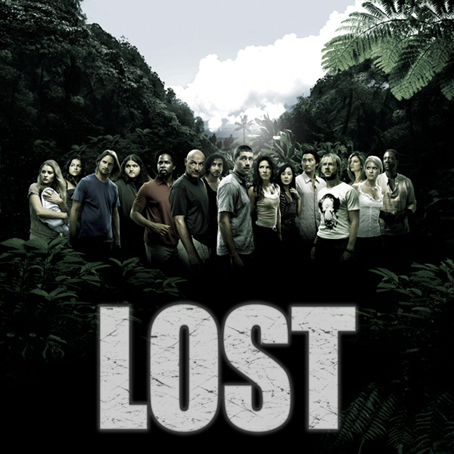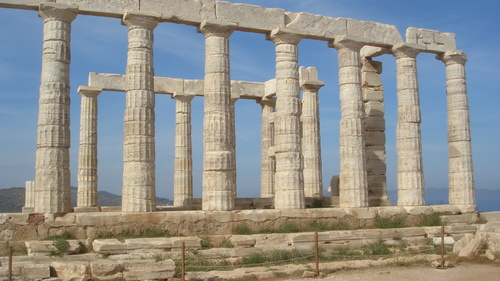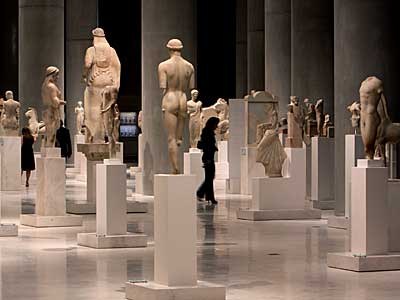As the Grateful Dead once said— What a long strange trip we’ve been on. In this case the trip has lasted six years and more than a hundred episodes with only 4 hours worth not actually filmed on the island of Oahu, though various episodes and scenes appear to be elsewhere. The script writers and producers have informed us that the focus of the series was on characterization and character development, rather than mainly on plot, but in fact it was also about character in the sense of moral development as well in various of the story lines.
So what should we make of this final season which had two story lines which occasionally seemed ready to converge or at least touch, if not intersect? Many have reacted to the two part finale of the show as if it were saying something rather like what T.S. Eliot once said— ‘This is how the world ends, this is how the world ends, not with a bang but a whimper’, or perhaps we are led to ask, paraphrasing W.B. Yeats ‘and what rough beast do we find here dragging itself to Bethlehem to be born’? Do we have a post-modern cliche of an ending in which its not about the purpose or meaning of the life and how it ends, its about the journey, and joy in it? I actually think these analyses do not quite get at the heart of the matter. Here are several points that the enhanced comment versions of the last two episodes remind us of—
1) the alternate story line where the Oceanic 815 never crashes and life goes on is neither a flash back nor a flash forward (though we have had plenty of those in this six year drama) but a flash sideways— a what if the plane had not crashed and life went on, story line. This story line is a pleasant fiction but that is just precisely what it is. Call it the dreams of the dead, or whatever, but as Desmond in the last few episodes tries to make clear to the others– the alternate story line is not reality, rather the characters need to be made to realize what did in fact happen— they were in a plane crash.
2) But the real kicker is that the first story line is also not about life in any part of this world nor is it about human imaginings— its about the afterlife, in this case in Hell, as Richard Alpert says so clearly and bluntly in the sixth season. The characters then find themselves in a struggle to prevent Hell breaking loose from its present locale and becoming Hell on earth. Mr. Smoke Locke (i.e. evil) is the one who most wants to escape that prison, by any means necessary and at any cost necessary. But he does not manage to pull it off. And the reason he isn’t able to escape the island of Hell is because some of the other inmates there prevent him from doing so. The island is the cork in the bottle that prevents Hell from escaping into this world— a place where dreams do occasionally become reality. Despite what the Eagles once said (you can check out but never leave), apparently some in Hell think otherwise, and have to be restrained, stopped. finished.
In other words, when that plane broke apart in the sky, everyone died. There was no island life for them, not Gilligan’s island or any other island in this world. They were in the afterlife— pure and simple, which is real enough, but not of this world and not in this world. We could debate whether in fact some of the characters managed to find a way to escape Hell by good deeds etc., in which cases it is rather like purgatory, and some of the final scenes suggest that a few did. But even so this may as well be a pleasant fiction.
What is more certain is that life and people are complex, and why should we expect the afterlife to be any different? The producers and writers suggest a pan-religious afterlife situation (noting the chapel with the stain glassed windows from all six major world religions and the general more impersonal theme of going into the light, and how darkness did not overcome the light). With Jack dying and a dog lying beside him we are led to ask— do all dogs go to heaven, or all people (e.g. the reunion scene in the church in the last episode), so that what once was lost is now found, or do we all remain lost, trapped in Hell ‘dying to be elsewhere’. We have to remember the church reunion scene is in the flash sideways story line, and that story line is not reality. Note however that there is still free will in that story line for Ben chooses not to go in.
This series was a profoundly philosophical and religious series in many ways, and it also explored ideas of quantum physics, time travel and other interesting subjects. Destiny vs. free will, light vs. dark, redemption vs. eternal damnation and more. I doubt there will be another such show like it in the near future. Instead of dumbing down the script the writers thought it better to tease our minds into active thought about profound things—- and we are better for it.
In the end I liked many of the characters and many of the episodes and some of the character development. I liked the fact that this show did not insult our collective intelligence or pander to our lowest desires, interests, or lusts like most television I wasn’t expecting a happy Christian ending, and it did not have one. But it did lets us know that sometimes our dreams are better than our realities, and it is no wonder some prefer the former to the latter. Like Alice in Wonderland we went down the rabbit hole into LOST ISLAND, and in various ways it proved more interesting than the alternative.


